Barry Long
Jump to navigation
Jump to search
Barry Long (August 1, 1926 – December 6, 2003) was an Australian spiritual teacher and writer.
Quotes[edit]
Love is not a feeling ~ The Article (1995)[edit]


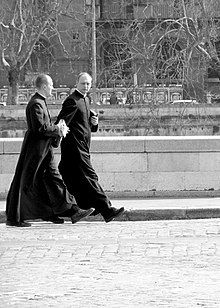
- I suppose the most radical part of my teaching at present is that love is not a feeling. Everybody suffers from love, or the fear of it, or the lack of it. Why? Why is love so universally and inevitably heart-breaking, whether it be through the end of a love affair, the death of a loved one or being locked in with the habitual casualness or grim indifference of a partner? The answer is because we've been taught and conditioned by the world to believe that love is a feeling.
- Love is not a feeling; it's a sensation. Drinking water when you're thirsty is a sensation, not a feeling. Being in nature or swimming in the sea is a sensation, not a feeling. Lying down when you're tired is sensational, not a feeling, although you may say it feels good. Feeling is an emotional interpretation of experience and these sensations don't need interpretation; they are just good or right. Making physical love rightly is a sensation, not a feeling. So is the love of God. The same goes for joy and beauty; both are sensational.
- But in our ignorance we emotionalise joy, beauty and love. We make feelings of them, personal interpretations based on our old emotions. We put our personal past on the present with the result that joy, beauty and love don't seem to last. But it's our emotional substitutes that don't last and we become bored, discontented and unhappy again. The sensation or knowledge of joy, beauty and love is of course still there but it's overwhelmed by these coarser feelings.
- Feelings are constantly changing. None is dependable for long. You can love someone intensely today, and tomorrow or next month not feel a thing. Except perhaps for the feeling of doubt or depression that what was so beautiful could change so quickly.
- Feelings, even the best of them, turn to negativity - disappointment, anger, discontent, resentment, jealousy, guilt, etc. A good feeling starts off being elevating, exciting, like taking a drug substance, alcohol or having sex. But what goes up must come down and feelings are no exception. So in a couple of hours or days the down side starts and you perhaps wonder why you feel moody, depressed, suicidal or just plain unhappy. You're paying the piper for yesterday's music. And between the upside and the downside is the no-man's and no-woman's land of boredom, indifference, inertia, weariness and pointlessness.
- Okay, so you don't have drugs, alcohol and sex but you love someone, as a feeling. Then it won't be long before you'll be experiencing one or more of the painful feelings I've mentioned above - and thinking it's natural! Wait and see. Even in every day living you're continually interpreting experience via your emotions instead of being the experience direct. "This is good, that's bad," your feelings swing subtly to and fro all day long obscuring the reality, the sensational knowledge or gnosis that it's not bad at all; it's simply life as it is.
- All feelings are false and deceptive. [...] Enlightenment is to be emptied (not empty) of feelings and thus at one with the pure sensation of divine being. And that pretty well sums up the whole spiritual process. But the spiritual process is so little understood that people don't realise their feelings are personal and false and have been misleading them all their life. If that's not true, why is humanity still unenlightened and basically unhappy after all this time - when enlightenment is the completely natural, sensational state of being every moment?
- By disidentifying with your feelings you break your attachment to them. When that is done sufficiently you're back at the beginning, in pure sensation or unconditioned knowledge. You've been beating your head against the wall to get some feelings and all you've got to do is break the habit and get used to living anew without pain and conflict. But that's a mighty realisation, and a mighty simple one which few are going to accept - they'll be too busy defending their feelings! So, I guess I'll still be demonstrating this the day I die.
- Incidentally, it seems to me that's why Andrew Cohen tells his students to be fearless and deadly serious. It takes that kind of one-pointed commitment to detach from the delusion of feelings and finally discover the blessing of the valiant; once freed of personal feelings the troublesome mind stops forever.
- Enlightenment is enlightenment. And that's that. It's an unalterable, unwavering state of knowledge and being beyond doubt, a completion every moment by grace of the Most High, the unspeakable one, God. That's the ultimate; the absolute being beyond any description. But the ultimate, the enlightenment of man, must translate into his living life. And to me and my teaching that means an enlightened man is liberated from unhappiness. Being and living free of unhappiness is the natural and simple state of all life on earth - except man. He has been misled away from it by spiritual lures and glamour and the result is the conflict and pain, the fluctuating unhappiness, of his short life.
- Enlightenment can't be pursued or sought after. [...] Truth is here now; no past, no future. People are unenlightened only because they believe in the truth of the past and therefore must look to the rewards of the future. To be enlightened, to return to the original state of life on earth, requires action now in the present with no reference to the past. What has to be done is to kill the old priest in you, starve out the traditionalist, the follower, the believer.
- In other words, to be enlightened of the acquired burden every spiritual belief and notion has to be abandoned, every reference to what any spiritual teacher or master has ever said must be set aside. What does that leave? Your own experience. Not your historical or memorable experience, for that's the problem. Your own experience is your self-knowledge of life. Let's establish once and for all what this means now. Forget everything I've said in this article except this question: Do I want to suffer or not suffer NOW? That's the only truth for you. There's no tradition, no past, no discussion in it. It's all you need. Keep it with you and at the next temptation to suffer it will prevent you suffering. But only if you've learned in your own experience what causes you to suffer. If you haven't learned that, you're still attached to suffering and will unwittingly embrace it. In that case you have to read on, take more time and ask yourself more questions.
- Have you learned yet that you only suffer when you think about events or feel about them, that you don't suffer from events themselves? Have you learned yet that every thought about yourself is a thought of the past, that worry is thinking and that all thinking eventually leads to worry, fear and insecurity? If so, each time you go to think, or catch the thinker thinking even about "good" things like last night's movie, don't; stop. Not because Barry Long says so but because you've realised the truth of thinking in your own experience. It's what you've learned from life, not from someone else's experience. Therefore it is the truth for you now and every moment. Otherwise you must go on thinking and go on suffering. One day, when you've had enough of the pain, you'll come to your senses. Have you learned yet that every feeling is a feeling of the past and that every "good" feeling soon changes and eventually becomes the feeling of doubt, confusion, boredom or sorrow? If so, stop believing your feelings; don't act on them; wait.
- Action will happen in its own time. Action taken on strength of feelings inevitably leads to more feelings to correct the action previously taken - and so the feelings of discontent and conflict, and corrective actions go on and on repeating themselves.
- If in your own experience you haven't yet learned the truth of the deception of feelings, then you just have to go on believing and thinking, having faith in the past and hope in the future, being happy today and unhappy tomorrow, but never being in command of your own life for long.
Love is not a feeling ~ The Interview (1995)[edit]

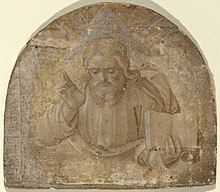
- Love is the state of enlightenment and enlightenment is the state of love. You can't make any separation between them. Enlightenment is the state of no feelings and pure knowledge and so is love.
- All your problems come down to love. Your love life is what your problem is, and everybody else's on earth. God in existence is man and woman. There's nothing else. And unless you have loved God in existence - your duality which is woman or man - unless you have united with that through love and devotion without going through your feelings of love, you're not going to be enlightened.
- The love of man and woman is the beginning of the love of God. You can realise God within like many men have done. It's one of the rarest things on earth to realise God, but everybody seems to think that that's the end. Where I come from, realising God was the easy part of it. That God of love which is already here anyway - who wouldn't be able to realise it? The difficult part is to bring that God into this world where God or love is not, into that body listening to these words and this body speaking them. That's the task.
- Do you know what humanity is, what the word "human" means? The word human where I come from - which is the enlightened state - means suffering. So when you say you're a human being, you're saying you're a suffering being. And I say you have to get rid of your suffering and then be being. Enlightenment is the state of being which I am, this moment and every moment. So I'm not suffering. But humanity loves to suffer. People love to suffer because they love to get excited with their feelings. All you've got to do is get rid of your feelings, which are always negative. Why not get rid of the whole lot of it, now? That means you don't know feelings and then you don't know negativity, and then you'd be in love, and then you would love everybody by not loving anybody in particular as a feeling. That's the state of enlightenment.
- Yes, well I noticed that in your last issues' interviews with those Eastern teachers ["From light to Light," Jan. 1995], emptiness was mentioned a lot. I find that a wrong word. Because in God realisation and being one with God the Most High, the unspeakable one, there's no sense whatsoever of ever having done anything yourself. It is all done for you. It's by grace. And so it's not being empty, it's being emptied. There's a different emphasis or a different connotation to that.
- Response to the question "You write, "Enlightenment is to be emptied (not empty) of feelings and thus at one with the purest sensation of divine being." What's the distinction here between being "emptied" and being "empty" of feelings?"
Knowing Yourself: The True in the False (1996)[edit]
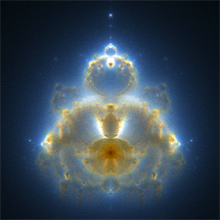

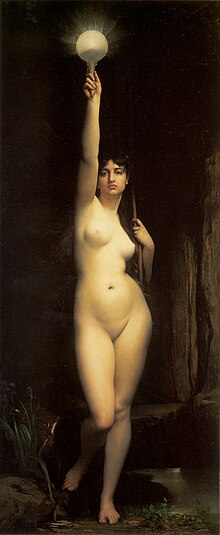



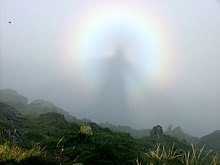

- Knowing Yourself: The True in the False (Barry Long Books, 1996)
- Knowing Yourself - The true in the false, gradually strips away all self-delusion until all that remains is pure being.
- KNOWING YOURSELF means being able to separate the true from the false in yourself - love from emotion, joy from sentiment, Will from desire. No man can teach another self-knowledge. He can only lead him or her up to self-discovery - the source of truth.
- You must not believe anyone in the search for truth; you have to find out for yourself. But although you are on your own, help will come when it is really needed.
- You are either ready to discover yourself or you are not. Ready means you have been knowingly or unknowingly practicing self-observation.
- You don't gather knowledge when you are getting to know yourself; you lose it. Many of your firmest ideas go out the window. You may feel naked, vulnerable, threatened, argumentative, angry.
- It is a little known fact that truth cannot be memorized. Truth has to be discovered now, from moment to moment. It is always fresh, always new, always there for the still, innocent mind that has experienced life without needing to hold on to what has gone before.
- Absorb what is said as you read but endeavor not to hold on to it or think about it. Read in the moment and each step will take you closer to complete self-knowledge.
- You must not believe me. You must realize it in yourself know it, for it is beyond words and thinking. And it has to be experienced without recourse to drugs or insanity.
- To believe what another says about you is unconscious, robot thinking. Nothing is true in self-discovery unless it is true in your own experience. This is the only protection against the robot levels of the mind.
- Truth does not need argument, agreement, theories or beliefs. There is only one test for it and that is to ask yourself 'Is the statement true or false in my experience?'
- Truth cannot be taught but it is quickly recognized by the person ready to discover it.
- It is the conscious man or woman who finds the secret of happiness and contentment; and that, surely, is the ultimate success.
- To listen, to learn, your mind has to be still. Have you ever observed that you can have only one thought in your mind at a time?
- When self-knowledge reveals the answer it will be a living fact in your own experience. At any time you wish to experience the answer it will be there, just as you can say 'It is night' or 'It is day'. You will know, while the rest of the world is arguing and speculating.
- The only way we can ever get through to the truth is by finding out what we are not. We do that by looking, by observation.
- This process of self-discovery is scientific and the invariable rule of science has to be applied - experiment and observe. The experiment is to ask the question; the observation is to look at yourself and see what happens. Being a science the law cannot vary. Any apparent variation is in you: you will have stepped off the way of facts into conclusions. The sun is either shining or it is not. You do not have to conclude; you just look.
- When you observe yourself you must not condemn or approve what you see. If you tell a lie there is no need to judge your-self. The judge cannot be the judged, and even to accept is to judge.
- Your object is to see yourself exactly as you are. Self-knowledge is the discovery of the new: it looks beyond the world that has all the answers and no solutions.
- The truth is that once you discover something is false you lose interest in it. Man no longer treasures what he thought was genuine once he discovers it is false. In this way truth is its own solution. Self-knowledge is the discovery of the false. You do not have to find what is true: when the false is discarded truth is there. It always was. Just keep observing the fact and the change will come automatically and will he lasting.
- Love is beyond description; but not beyond demonstrating. Love is beyond the mind because it is always new. Any product of the mind is a reaction of the past, a synthesis of what is old. So the mind is a modifier, a reactor; a renovator, but it cannot create the new.
- When the robot mind is mastered, undisciplined thinking ceases and is replaced by awareness. Awareness can know love. You can only experience the new when you are aware, when you are without thought.
- IF YOU LOOK at life's totality you will notice that every living thing exists for something else. The failure to give and receive is followed first by unconsciousness and then death.
- Man conscious is man immortal. Man conscious gives to the creation as no other thing can give and is beyond death. But it is no use my just saying this. You must discover it, realize it for yourself.
- Worry is a purely selfish expression. The fact is that to worry or suffer mentally you have to have an opinion. You have to say 'That is bad in relation to me.' The opinion will prevent you from seeing the truth.
- THE STATE OF AWARENESS is the state in which you see things as they are: the precious facility that life has given man to escape the mastery of the robot. It is the habit of the mind to destroy the state of awareness as quickly as possible. It does this by judging, for judging is thinking.
- There is only one thing in your life YOU can be sure of. That one thing is this moment, now. The last moment has gone forever. The next moment has not come. YOU can become fully conscious only when you are living in the moment. To begin to live in the moment you have to know it exists and understand it. To understand it you have to observe it in relation to yourself and in relation to life. When you understand it, when you become conscious, you will see it is all that exists. To see this is to glimpse reality.
- The more you observe life in relation to yourself the more you will see the fact that you are hardly ever correct when you think about something in the future. The future exists only in imagination; and that is why, no matter how hard you try to imagine it, you will not be able to predict the future with total certainty.
- The moment is your only duty. Your duty at any time in your life is to do what you have to do from moment to moment. What you have to do is what you cannot avoid doing. What you cannot avoid doing is what you do.
- It is only because you are a machine that you suffer; and the purpose of suffering is to wake you up.
- The moment is God's will. Life reveals itself only to the conscious. The disharmony is in the robot mind's desire to control life to suit its individual interests - an impossibility; but you keep trying.
- We can rarely see things from the point of view of another person because we look at the facts through the screen of an impression or an interest which distorts our view; and then there are accusations, quarrels and misunderstanding.
- You will become more conscious if you use the moment of being rebuked or blamed to observe your reaction. You will observe yourself making an excuse, giving a reason.
- Each moment provides a challenge to you to become conscious. The game is to be waiting, and aware.
- You can predict exactly what a machine will do if you have sufficient knowledge of it. A machine cannot go beyond the limitations of its design. The man-machine fears death because a machine cannot see beyond its own destruction.
- One of the greatest steps in self-discovery is to see that you are a machine. Only the few who have real knowledge will admit to being machines.
- The man-machine will crucify any conscious man who tries to help him; and convert his wisdom into an empty, mechanical dogma that suits his own understanding.
- YOU ARE WHAT you believe you are. You live, enjoy life and suffer according to that belief. What you believe, you live; or you do not believe it.
- To be conscious is to be consciousness: Consciousness, the knower in you, cannot be known, although it can be experienced. You can experience consciousness now by experiencing the fact that you exist.
- You think: you become that thought. And consciousness, or the state of pure awareness, is lost. The highest knowledge man can possess is that which is true in his own experience. If his experience is limited, so is his knowledge and he behaves accordingly.
- The fact is always simple. The difficulty is in seeing it through the mind which always takes the imaginative way - until it is stilled. The mind knows it is the master in imagination and the slave of the fact. It will fight you all the way to self-knowledge. And why not? It is the only enemy.
- WE HAVE SEEN that hunger and breathing are desires of the body. There are other desires that are not of the body, but again man seldom pauses to observe these desires in himself. For us who are observers of ourselves there can never be a hidden desire or hidden motivation. If we are always observing ourselves nothing hidden can come in without being spotted, and nothing hidden can get done, because we (the master) are always there.
- Before you can escape from your burrow you must know you are trapped. Then there's a chance.
- If God exists, God can be experienced; but only by you.
- Reasonable acceptance, our way of living, is imperfect. But God, if God exists, must be perfect and beyond reason.
- Reason is a mighty faculty but it is still below the state of awareness, of pure experiencing, which is the state you are in when you know 'I exist' or 'I am'.
- The fact is that unless you experience something for yourself it does not exist for you. If God exists you must have the experience of God in the moment; otherwise you are absent and God cannot exist for you.
- To go beyond reason we have to climb up the ladder of reason and go to the top of it. This will not upset reason as it is interested only in assembling the facts, whatever they might be. Reason is an ever-loyal tool; imagination an ever-failing fool.
- At the top of the ladder is awareness, or pure experience - the edge of yourself, and possibly the beginning of God.
- Many mystics have said, and it is true, that anything you see is not God. Anything you think is not God, neither are visions, lights, moving objects or anything else. Any sensation or feeling is not God. They are all the products of the creation or your imagination.
- The Creator has to be experienced beyond the five senses and the only instrument that can experience in this way, for you, is yourself - in the state of thoughtless awareness in which you declare 'I am' and hold it.
- In the beginning the entire creation seems to hinder, obstruct and try to keep you away from experiencing the Creator. It is the way of things that only the unrelenting, indomitable individual can escape and experience God. The curious masses always fail. Later on, all things help, not hinder, the valiant ones.
- On the way to God you have to pass through beauty, pure beauty. If you do not pass through beauty it is not God that you find. Beauty stands at the gate of the kingdom of heaven. It is of the Creator, but not the Creator; and it is all-mighty.
- Beauty is the only uncreated thing you can experience apart from God. Beauty is and always is. You are absent. Why are you absent? Again your robot mind is the problem. It will not stay still and you cannot make it stay still. It is your master and it separates you from beauty and God. So to experience beauty, love, truth and peace, or God, your mind has to be stilled.
- Reason does not need thinking. If you observe yourself making a plan you will notice that having fixed the object, the facts just keep coming, linking up into a chain of proposed action. Awareness is experiencing from moment to moment. Reason acts quickly in awareness, a thousand times faster than thought, and you do not even notice it is operating.
- You can only get next to God through the effort of preparation. To experience the uncreated, the state of awareness will have to be held for several minutes. You are then between time and the timeless - waiting for the unknown, which will come but cannot be willed.
- Love is a power, a mighty principle that exists in its own right independent of any individual. Man changes, but the principle of love does not and cannot. Love does not leave men and women. Men and women leave love.
- Love is all around you like the air and is the very breath of your being. But you cannot know it, feel its unfeeling touch, until you pause in your busy-ness, are still and poised and empty of your wanting and desiring. When at rest the air is easily offended and will flee even from the fanning of a leaf, as love flees from the first thought. But when the air or love moves of its own accord it is a hurricane that drives all before it.
- The understanding of love comes with the knowledge that you are nothing. The greatest purity is nothing or nothingness - no thinking, no desiring, no imagining. You are then one with the moment and the great movement of life so nothing can happen that is not right. Every moment is perfect and everything that happens is eternally just.
The Way In (2000)[edit]
- The truth every man and woman seeks is in themselves.
- All love - love of children, love of parents, love of God or life - comes out of making physical love. Without the making of love there is no body to love anything.
- Human love is not love. Love is natural to every body but it becomes human love as the person learns from society to confuse love with sex.
- Sex is excitement, seeks satisfaction and soon loses interest - selfishness. Making love is passionate, fulfilling and does not look for an end - selflessness.
- Nothing is true unless it is true in your own experience. This is your protection against being duped or misled.
